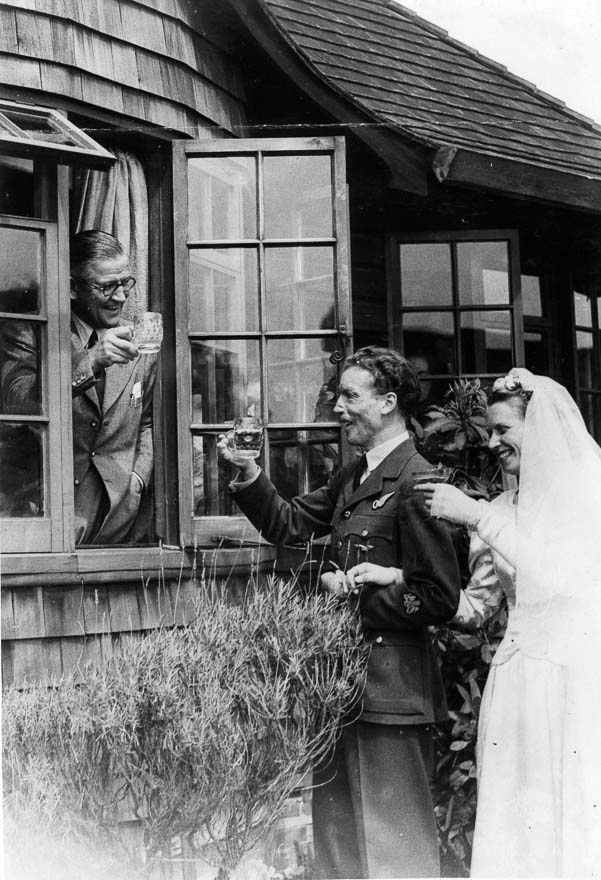
Renowned wartime surgeon Sir Archibald McIndoe (left) toasts a former patient and his bride on their wedding day. The photograph was taken in England in August 1947.
McIndoe maintained regular contact with airmen he treated during the Second World War, especially in his role as president of the 'Guinea Pig Club'. The club was formed by some of his patients in June 1941 to help pass the time during their long reconstructive treatments. They chose the title 'Guinea Pig Club' as a reference to the experimental nature of the treatments they were recieving. The club even had its own song - the Guinea Pig Anthem:
We are McIndoe’s army,
We are his Guinea Pigs.
With dermatomes and pedicles,
Glass eyes, false teeth and wigs.
And when we get our discharge
We’ll shout with all our might:
“Per ardua ad astra”
We’d rather drink than fightJohn Hunter runs the gas works,
Ross Tilley wields the knife.
And if they are not careful
They’ll have your flaming life.
So, Guinea Pigs, stand steady
For all your surgeon’s calls:
And if their hands aren’t steady
They’ll whip off both your earsWe’ve had some mad Australians,
Some French, some Czechs, some Poles.
We’ve even had some Yankees,
God bless their precious souls.
While as for the Canadians -
Ah! That’s a different thing.
They couldn’t stand our accent
And built a separate WingWe are McIndoe’s army,
(As first verse)Sung to the tune Aurelia by Samuel Sebastian Wesley (1864)
To be eligible for the club, members had to be serving airmen who had gone through at least ten surgical procedures. Along with aircrew patients, membership was extended to the medical staff that treated them at the Queen Victoria Hospital in East Grinstead, Sussex.
By the end of the war the club had 649 members. The majority were British but there were also New Zealanders, Canadians, Australians, Americans, French, Russians, Czechs and Poles. During the Battle of Britain, most of the members were fighter pilots but by end of the war, the vast majority were from RAF Bomber Command.
After the war the club provided a support network for its members and reunions were regularly held for 60 years until 2007. The last president of the club was Prince Philip, Duke of Edinburgh.

Community contributions